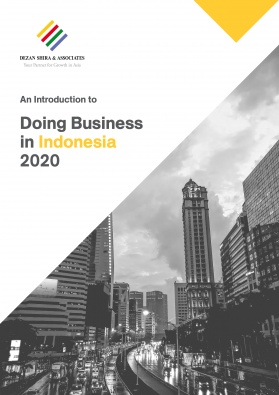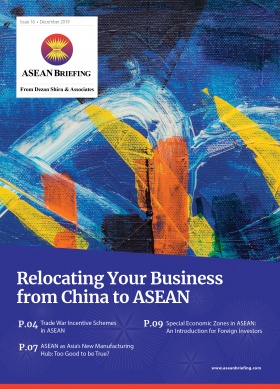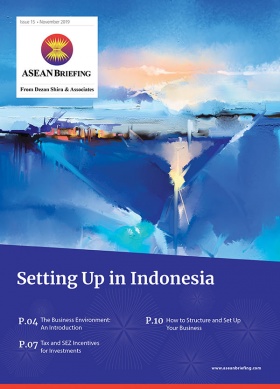The Philippines Prepares New Stimulus Program: CREATE Act
- The Philippines is preparing to issue the CREATE Act to accelerate reforms of the country’s corporate tax system.
- Under the Act, the corporate income tax rate will be reduced from 30 to 25 percent, and then by one percent increments until 2027.
- The government hopes this will benefit more than 90,000 small businesses in the country as well as attract high-value foreign investments.
The Philippines government is preparing to launch the largest stimulus program in the country’s history – the Corporate Recovery and Tax Incentives for Enterprises Act (CREATE).
CREATE is a recalibration of the Corporate Income Tax and Incentives Rationalization Act (CITIRA), which was issued in September 2019, aimed at reducing the corporate income tax (CIT) rate and rationalizing specific tax incentives.
Through CREATE, the government will immediately reduce the CIT rate from the current 30 percent to 25 percent. The Act also proposes any losses incurred by non-large taxpayers in 2020 can be carried over for the next five years, and the government will be more flexible in granting fiscal and non-fiscal incentives to attract high-value foreign investments.Investors should monitor announcements from the Department of Finance before the Act officially becomes law. The government is aiming for the Act to be implemented in July 2020.
Accelerated CIT reduction
The government is proposing to immediately cut the CIT rate from 30 percent to 25 percent from July 2020 until 2022. This will be followed by a one percent yearly reduction until 2027 to bring the rate to 20 percent.
In reducing the CIT rate, the government hopes this will benefit more than 90,000 micro, small, and medium-sized (MSMEs) who make up the backbone of the Philippines’ economy. Its current CIT rate is the highest in ASEAN, a factor that has hindered local businesses from expanding and hampers the country’s ability to compete with its regional neighbors.
The government says businesses in the country can save an estimated P42 billion (US$842 million) in tax savings and over P625 billion (US$12.5 billion) over the next five years. These savings can be reinvested by firms to revitalize their business and boost cost competitiveness.
Carryover of net operating loss
The Act recognizes the unique circumstances businesses are going through in 2020 and has proposed an enhanced net operating loss carryover (NOLCO), by extending the current three-year carryover period by a further two years, making it a total of five years.
This enhanced NOLCO amendment will allow companies to deduct incurred losses from tax payments for a much longer period and provide them time to re-organize their financial standings.
Greater flexibility in granting incentives
Under CREATE, the Fiscal Incentives Review Board (FIRB), the agency responsible for overseeing the country’s investment promotion agencies (IGAs), will be given the authority to recommend to the President the appropriate fiscal and non-fiscal support initiatives. This includes tax incentives, logistics support, training, the facilitation of obtaining certification from government agencies, and customs facilitation for investors, among others. Under CITRA, the FIRB had no such power.
Upon the recommendation of the FIRB, the President can approve the said incentives along with longer periods of availments of up to 40 years. The President can also modify or mix the type of incentive to create high-value investments and job creation.Extension of the sunset period
IPA-registered companies that are paying the existing five percent gross income earned (GIE) tax incentive will have their sunset period extended by two years to adjust to the new incentive scheme.
IPA-registered firms can avail the preferential final tax of five percent of gross income in lieu of all national and local taxes. This is only available after the income tax holiday (ITH) of six years initially provided by the IPA comes to an end.
The new sunset periods are:
- Four years for businesses that have spent more than 10 years under the GIE program;
- Five years for businesses that have spent 5-10 years under the GIE program;
- Seven years for businesses that have spent 7 years under the GIE program; and
- Nine years for businesses that export 100 percent of their products/business and employ at least 10,000 people.
CREATE aims to be more targeted
The government has promised the CREATE Act will promote a fair and accountable tax incentive system.
Companies applying for CREATE will need to showcase to the government that they can make measurable economic contributions, such as through the creation of high-quality jobs, promoting quality exports, development of pioneer industries, and use of modern technology.
Companies will also be reviewed every two years and approved activities will be given incentives in set periods of five, seven, and 10 years. Furthermore, the names of the businesses receiving the incentives shall be made open to the public for transparency.
About Us
ASEAN Briefing is produced by Dezan Shira & Associates. The firm assists foreign investors throughout Asia and maintains offices throughout ASEAN, including in Singapore, Hanoi, Ho Chi Minh City and Jakarta. Please contact us at asia@dezshira.com or visit our website at www.dezshira.com.







